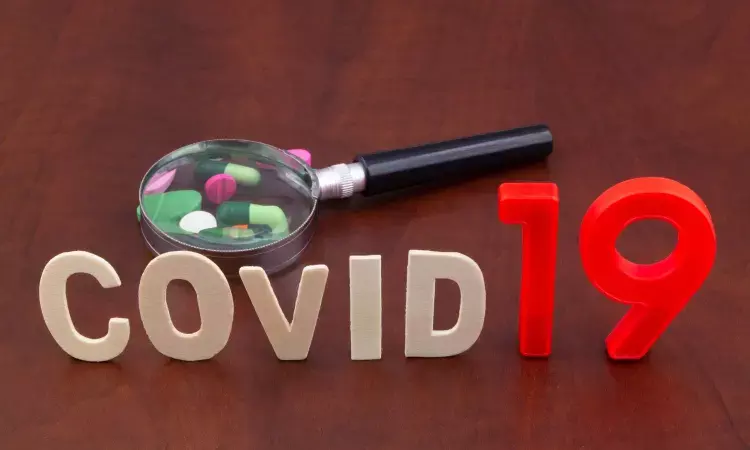- Home
- Medical news & Guidelines
- Anesthesiology
- Cardiology and CTVS
- Critical Care
- Dentistry
- Dermatology
- Diabetes and Endocrinology
- ENT
- Gastroenterology
- Medicine
- Nephrology
- Neurology
- Obstretics-Gynaecology
- Oncology
- Ophthalmology
- Orthopaedics
- Pediatrics-Neonatology
- Psychiatry
- Pulmonology
- Radiology
- Surgery
- Urology
- Laboratory Medicine
- Diet
- Nursing
- Paramedical
- Physiotherapy
- Health news
- Fact Check
- Bone Health Fact Check
- Brain Health Fact Check
- Cancer Related Fact Check
- Child Care Fact Check
- Dental and oral health fact check
- Diabetes and metabolic health fact check
- Diet and Nutrition Fact Check
- Eye and ENT Care Fact Check
- Fitness fact check
- Gut health fact check
- Heart health fact check
- Kidney health fact check
- Medical education fact check
- Men's health fact check
- Respiratory fact check
- Skin and hair care fact check
- Vaccine and Immunization fact check
- Women's health fact check
- AYUSH
- State News
- Andaman and Nicobar Islands
- Andhra Pradesh
- Arunachal Pradesh
- Assam
- Bihar
- Chandigarh
- Chattisgarh
- Dadra and Nagar Haveli
- Daman and Diu
- Delhi
- Goa
- Gujarat
- Haryana
- Himachal Pradesh
- Jammu & Kashmir
- Jharkhand
- Karnataka
- Kerala
- Ladakh
- Lakshadweep
- Madhya Pradesh
- Maharashtra
- Manipur
- Meghalaya
- Mizoram
- Nagaland
- Odisha
- Puducherry
- Punjab
- Rajasthan
- Sikkim
- Tamil Nadu
- Telangana
- Tripura
- Uttar Pradesh
- Uttrakhand
- West Bengal
- Medical Education
- Industry
Empagliflozin may not exhibit clinical or mortality benefit in COVID-19 patients

The RECOVERY trial has concluded that empagliflozin, a drug proposed for its anti-inflammatory and metabolic effects, does not provide substantial benefits or effects for COVID-19 treatments in patients hospitalized with the virus. The critical findings were published in The Lancet Diabetes & Endocrinology.
This randomized, controlled, open-label study was aimed to assess the safety and efficacy of empagliflozin in COVID-19 patients. From July 28, 2021 to March 6, 2023, a total of 4271 patients were randomly assigned to receive either empagliflozin (2113 patients) or usual care alone (2158 patients).
The primary outcome of 28-day mortality showed no significant difference between the two groups, with a mortality rate of 14% in both the empagliflozin and usual care groups. Also, secondary outcomes, including the duration of hospitalization and the composite of invasive mechanical ventilation or death, did not reveal observable distinctions.
The data monitoring committee recommended a review of the data on March 3, 2023, leading to the halt of recruitment on March 7, 2023. Notably, two serious adverse events believed to be related to empagliflozin were reported, both involving ketosis without acidosis.
The findings suggest that empagliflozin, at a dosage of 10 mg once daily for 28 days or until discharge, does not confer a significant advantage in terms of mortality, hospitalization duration, or the risk of progression to invasive mechanical ventilation or death in adults hospitalized with COVID-19.
Empagliflozin, commonly used in the treatment of diabetes, does not appear to be a recommended intervention for COVID-19 unless there is a pre-existing indication for its use due to another condition. This outcome underscores the complexity of finding effective therapeutics for COVID-19 and emphasizes the importance of evidence-based, thoroughly tested treatments in the ongoing battle against the pandemic.
Reference:
Abani, O., Abbas, A., Abbas, F., Abbas, J., Abbas, K., Abbas, M., Abbasi, S., Abbass, H., Abbott, A., Abdallah, N., Abdelaziz, A., Abdelfattah, M., Abdelqader, B., Abdul, A., Abdul, B., Abdul, S., Abdul Rasheed, A., Abdulakeem, A., Abdul-Kadir, R., … Zuriaga-Alvaro, A. (2023). Empagliflozin in patients admitted to hospital with COVID-19 (RECOVERY): a randomised, controlled, open-label, platform trial. In The Lancet Diabetes & Endocrinology (Vol. 11, Issue 12, pp. 905–914). Elsevier BV. https://doi.org/10.1016/s2213-8587(23)00253-x
Neuroscience Masters graduate
Jacinthlyn Sylvia, a Neuroscience Master's graduate from Chennai has worked extensively in deciphering the neurobiology of cognition and motor control in aging. She also has spread-out exposure to Neurosurgery from her Bachelor’s. She is currently involved in active Neuro-Oncology research. She is an upcoming neuroscientist with a fiery passion for writing. Her news cover at Medical Dialogues feature recent discoveries and updates from the healthcare and biomedical research fields. She can be reached at editorial@medicaldialogues.in
Dr Kamal Kant Kohli-MBBS, DTCD- a chest specialist with more than 30 years of practice and a flair for writing clinical articles, Dr Kamal Kant Kohli joined Medical Dialogues as a Chief Editor of Medical News. Besides writing articles, as an editor, he proofreads and verifies all the medical content published on Medical Dialogues including those coming from journals, studies,medical conferences,guidelines etc. Email: drkohli@medicaldialogues.in. Contact no. 011-43720751


